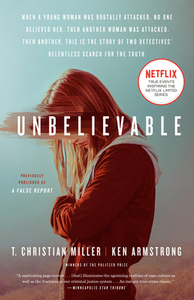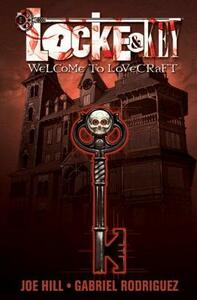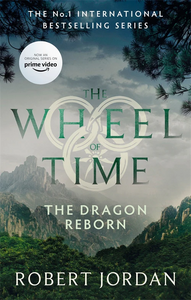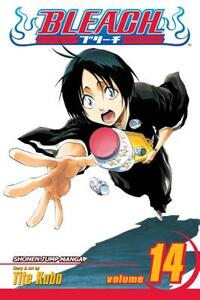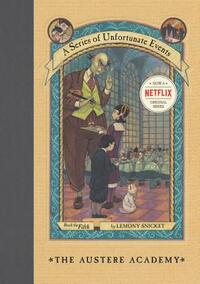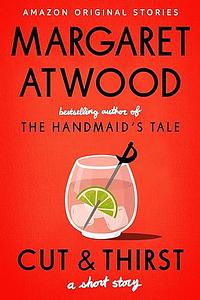You need to sign in or sign up before continuing.
Take a photo of a barcode or cover
lefttoread's Reviews (532)
While the subject matter is undeniably important, and the book plays a crucial role in raising awareness about the realities of sexual assault, I found myself struggling to connect emotionally with the narrative. The stories of the survivors and their bravery in sharing their experiences are deeply admirable, but the writing style left me feeling somewhat detached.
The book focuses heavily on the procedural details of the investigations and the perspectives of the detectives involved, which may appeal to some readers, but at times this emphasis seems to come at the expense of a more emotional or human connection with the victims themselves. The writing, while clear and meticulous, can feel distant, making it hard to fully engage with the intense and personal nature of the stories being told
The book focuses heavily on the procedural details of the investigations and the perspectives of the detectives involved, which may appeal to some readers, but at times this emphasis seems to come at the expense of a more emotional or human connection with the victims themselves. The writing, while clear and meticulous, can feel distant, making it hard to fully engage with the intense and personal nature of the stories being told
I first picked up Locke & Key, Volume 1 back in 2020, but I never made it through the entire series. This year, I decided to restart it to see if it still captured my interest — and I’m happy to say it absolutely does!
Revisiting the first volume was just as thrilling and entertaining as I remembered. It's a wonderfully bizarre, weird, and creepy story that pulls you in from the very first page. The mix of supernatural horror, dark fantasy, and gripping drama is masterfully done.
The artwork is stunning, with every page bringing a unique sense of atmosphere that perfectly complements the eerie and mysterious storyline. The characters are well-developed and compelling. I’m excited to continue with the series this time around and dive deeper into this twisted world.
Revisiting the first volume was just as thrilling and entertaining as I remembered. It's a wonderfully bizarre, weird, and creepy story that pulls you in from the very first page. The mix of supernatural horror, dark fantasy, and gripping drama is masterfully done.
The artwork is stunning, with every page bringing a unique sense of atmosphere that perfectly complements the eerie and mysterious storyline. The characters are well-developed and compelling. I’m excited to continue with the series this time around and dive deeper into this twisted world.
After reading All the Sinners Bleed and My Darkest Prayer, I find myself caught in a bit of a dilemma with S.A. Cosby's work. On one hand, the writing is solid—Cosby has a definite knack for creating atmosphere and painting vivid pictures of his settings. However, despite the promising writing style, I found it challenging to truly connect with the stories.
For me, All the Sinners Bleed felt somewhat dry. It had all the elements of a gripping thriller—murder, a complex protagonist, small-town secrets—but it somehow lacked the spark needed to fully engage me. There were moments of tension and intrigue, but overall, I expected more depth or perhaps a greater emotional pull. Instead, the narrative felt a bit restrained, like it was holding back from its full potential.
That said, I'm not entirely ready to give up on S.A. Cosby just yet. There's something about his writing that suggests he could deliver a novel that truly resonates with me. I've heard great things about Razorblade Tears, and that may be the deciding factor in whether I continue exploring his works. I'm hopeful that it will bring the balance of strong writing and compelling storytelling that I've been looking for.
For me, All the Sinners Bleed felt somewhat dry. It had all the elements of a gripping thriller—murder, a complex protagonist, small-town secrets—but it somehow lacked the spark needed to fully engage me. There were moments of tension and intrigue, but overall, I expected more depth or perhaps a greater emotional pull. Instead, the narrative felt a bit restrained, like it was holding back from its full potential.
That said, I'm not entirely ready to give up on S.A. Cosby just yet. There's something about his writing that suggests he could deliver a novel that truly resonates with me. I've heard great things about Razorblade Tears, and that may be the deciding factor in whether I continue exploring his works. I'm hopeful that it will bring the balance of strong writing and compelling storytelling that I've been looking for.
The Dragon Reborn marks the third installment in Robert Jordan’s expansive Wheel of Time series, and, while I’ve been mostly enjoying the journey so far, this book left me feeling disappointed. As someone who was eager to delve deeper into this beloved series, it’s a bit unnerving to find myself unsure about my commitment to it now.
One of the biggest surprises was the minimal focus on Rand al’Thor. Initially, I thought a break from his story might be a welcome change, but by the end, I found myself yearning for his return to the spotlight. The narrative primarily follows the other characters on their separate paths, all coming back toward Rand. While I appreciated the opportunity to explore the different perspectives and their own growth, the absence of Rand’s journey felt like a missing centerpiece that left the story feeling somewhat fragmented and lacking the same intensity the first two books provided.
I appreciated the slow burn of the first two books, which allowed for rich world-building and a gradual unfolding of the plot. However, The Dragon Reborn seemed to be missing that special spark that made the earlier entries so engaging. Robert Jordan is undeniably talented at crafting a detailed world and creating complex, realistic characters, but I found his handling of relationship dynamics to be a bit lacking. The interpersonal connections between the characters sometimes felt forced or poorly developed, pulling me out of the story rather than drawing me further in.
There’s a lot to admire in Jordan’s writing—the immersive settings, the compelling lore, the epic sense of scale. And yet, three books in, I’m still waiting to be truly blown away. While I’m enjoying the experience of reading this series, I’m also nervous about whether it’s ultimately going to be for me.
For now, I’ll continue with cautious optimism, hoping that the next chapters in this epic saga will rekindle the excitement I felt at the beginning.
One of the biggest surprises was the minimal focus on Rand al’Thor. Initially, I thought a break from his story might be a welcome change, but by the end, I found myself yearning for his return to the spotlight. The narrative primarily follows the other characters on their separate paths, all coming back toward Rand. While I appreciated the opportunity to explore the different perspectives and their own growth, the absence of Rand’s journey felt like a missing centerpiece that left the story feeling somewhat fragmented and lacking the same intensity the first two books provided.
I appreciated the slow burn of the first two books, which allowed for rich world-building and a gradual unfolding of the plot. However, The Dragon Reborn seemed to be missing that special spark that made the earlier entries so engaging. Robert Jordan is undeniably talented at crafting a detailed world and creating complex, realistic characters, but I found his handling of relationship dynamics to be a bit lacking. The interpersonal connections between the characters sometimes felt forced or poorly developed, pulling me out of the story rather than drawing me further in.
There’s a lot to admire in Jordan’s writing—the immersive settings, the compelling lore, the epic sense of scale. And yet, three books in, I’m still waiting to be truly blown away. While I’m enjoying the experience of reading this series, I’m also nervous about whether it’s ultimately going to be for me.
For now, I’ll continue with cautious optimism, hoping that the next chapters in this epic saga will rekindle the excitement I felt at the beginning.
As a devoted fan of the Will Trent series, I was eagerly anticipating Karin Slaughter's latest, This Is Why We Lied, and I was lucky enough to end up with not one, but two, ARCs(one digital, one physical)! This novel is a gripping murder mystery set in a secluded location—an element I absolutely adore! The story begins with a murder and cleverly unfolds by working back through the timeline, tracing the events leading up to the crime. From the very first page, I was both frustrated and hooked—Slaughter knows how to build suspense and keep a reader turning the pages.
The structure of the story is one of its standout elements. I loved the layout, with its intricate weaving of past and present, and the way Slaughter deals out details at just the right pace to keep the tension high. The McAlpine family, who play a central role in the plot, are nothing short of awful—but they're written so well that you can't help but be drawn into their twisted dynamics. The character interactions and the power plays between them were handled with a clever touch, making for a darkly enjoyable read.
However, despite my overall enjoyment, I did find one aspect a bit disappointing. The elements surrounding our main characters—typically my favorite parts of the Will Trent series—felt somewhat off. There was a disconnect that I couldn't quite shake. Perhaps it was the fact that the main characters were on their honeymoon, which led to a heightened focus on the "lovey-dovey" side of things. While I appreciate character development and emotional depth, it felt out of place with these particular characters, and not entirely in keeping with the tone I've come to love in Slaughter's writing.
Overall, This Is Why We Lied is still a compelling read with a solid plot and some truly memorable characters, even if it didn't quite hit all the marks for me. For fans of the genre and Slaughter's work, it's definitely worth picking up.
The structure of the story is one of its standout elements. I loved the layout, with its intricate weaving of past and present, and the way Slaughter deals out details at just the right pace to keep the tension high. The McAlpine family, who play a central role in the plot, are nothing short of awful—but they're written so well that you can't help but be drawn into their twisted dynamics. The character interactions and the power plays between them were handled with a clever touch, making for a darkly enjoyable read.
However, despite my overall enjoyment, I did find one aspect a bit disappointing. The elements surrounding our main characters—typically my favorite parts of the Will Trent series—felt somewhat off. There was a disconnect that I couldn't quite shake. Perhaps it was the fact that the main characters were on their honeymoon, which led to a heightened focus on the "lovey-dovey" side of things. While I appreciate character development and emotional depth, it felt out of place with these particular characters, and not entirely in keeping with the tone I've come to love in Slaughter's writing.
Overall, This Is Why We Lied is still a compelling read with a solid plot and some truly memorable characters, even if it didn't quite hit all the marks for me. For fans of the genre and Slaughter's work, it's definitely worth picking up.
Bleach Volume 14 continues the thrilling saga of Ichigo Kurosaki and his companions as they venture deeper into the Soul Society, determined to rescue Rukia Kuchiki from her impending execution. This volume is a solid addition to the series, delivering an enjoyable mix of intense action, character development, and gripping storytelling.
Tite Kubo does an excellent job of balancing the high-stakes battles with moments that further develop the characters' relationships and motivations. In this volume, we see Ichigo growing stronger and more determined, revealing a side of him that is not just about raw power but also about his deep sense of loyalty and justice.
The tension between the members of the Soul Society is palpable, and the internal conflicts among them are just as compelling as the external battles. The dynamic between Renji and Byakuya, for instance, adds a layer of intrigue to the plot, while characters like Ganju and Hanataro provide comic relief and a different perspective on the world of the Soul Reapers.
Overall, Bleach Volume 14 is an engaging and enjoyable entry in the series. It propels the story forward. With its great pacing, memorable characters, and an ever-developing plot, this volume proves why Bleach remains a staple in the world of shonen manga.
Tite Kubo does an excellent job of balancing the high-stakes battles with moments that further develop the characters' relationships and motivations. In this volume, we see Ichigo growing stronger and more determined, revealing a side of him that is not just about raw power but also about his deep sense of loyalty and justice.
The tension between the members of the Soul Society is palpable, and the internal conflicts among them are just as compelling as the external battles. The dynamic between Renji and Byakuya, for instance, adds a layer of intrigue to the plot, while characters like Ganju and Hanataro provide comic relief and a different perspective on the world of the Soul Reapers.
Overall, Bleach Volume 14 is an engaging and enjoyable entry in the series. It propels the story forward. With its great pacing, memorable characters, and an ever-developing plot, this volume proves why Bleach remains a staple in the world of shonen manga.
While I’m still enjoying the series as a whole, I found myself getting a bit lost amid the flood of new faces and the intricate web of relationships between the various Soul Reapers. With so many captains, lieutenants, and squad members appearing in rapid succession, it felt overwhelming at times to keep track of who’s who and what their motives are.
This volume also focuses heavily on training and preparation, which, while necessary for the story’s progression, did slow down the pace a bit. I felt somewhat disconnected as the narrative shifted its focus away from the core group of characters we’ve grown attached to and more toward the inner workings of the Soul Society. It’s clear that Tite Kubo is laying a lot of groundwork here, building up to something bigger, but this particular volume didn’t quite grip me as much as some of the previous ones.
However, despite these points, there’s still plenty to enjoy in Volume 15. The world-building is rich, and Kubo’s artwork remains dynamic and engaging. The tension is building, and there are enough hints of intrigue and mystery to keep me turning the pages. I’m hoping that the next few volumes will pay off this setup and bring the story back into sharper focus, especially as Ichigo and his friends push deeper into the heart of the Soul Society.
This volume also focuses heavily on training and preparation, which, while necessary for the story’s progression, did slow down the pace a bit. I felt somewhat disconnected as the narrative shifted its focus away from the core group of characters we’ve grown attached to and more toward the inner workings of the Soul Society. It’s clear that Tite Kubo is laying a lot of groundwork here, building up to something bigger, but this particular volume didn’t quite grip me as much as some of the previous ones.
However, despite these points, there’s still plenty to enjoy in Volume 15. The world-building is rich, and Kubo’s artwork remains dynamic and engaging. The tension is building, and there are enough hints of intrigue and mystery to keep me turning the pages. I’m hoping that the next few volumes will pay off this setup and bring the story back into sharper focus, especially as Ichigo and his friends push deeper into the heart of the Soul Society.
After the disappointments of The Miserable Mill, I found The Austere Academy to be a slight improvement but still somewhat taxing on my patience with the series.
Snicket’s trademark dark humor is still present, and the introduction of new characters like the Quagmire triplets brings a breath of fresh air. Their presence offers a glimmer of hope and solidarity amidst the relentless gloom.
That said, the series does begin to feel formulaic at this point. The constant cycle of the Baudelaires finding a temporary refuge only to have it shattered by Count Olaf's latest scheme is starting to wear thin. The relentless misery and repetition can make the experience feel more like a chore than an adventure, especially when reading several installments in close succession. Reading them one after another can be a bit overwhelming, and spacing them out might be the best way to fully appreciate the peculiar charm and dark wit of Lemony Snicket's world.
Snicket’s trademark dark humor is still present, and the introduction of new characters like the Quagmire triplets brings a breath of fresh air. Their presence offers a glimmer of hope and solidarity amidst the relentless gloom.
That said, the series does begin to feel formulaic at this point. The constant cycle of the Baudelaires finding a temporary refuge only to have it shattered by Count Olaf's latest scheme is starting to wear thin. The relentless misery and repetition can make the experience feel more like a chore than an adventure, especially when reading several installments in close succession. Reading them one after another can be a bit overwhelming, and spacing them out might be the best way to fully appreciate the peculiar charm and dark wit of Lemony Snicket's world.
"Klara and the Sun" by Kazuo Ishiguro is a beautifully written and unique story that captivated me from the first page. Ishiguro's distinctive writing style is masterful, weaving a world that feels both familiar and deeply imaginative. The premise—following Klara, an Artificial Friend designed to provide companionship to children in a near-future world—immediately grabbed my attention, and I found myself quickly drawn into Klara's perspective.
What stood out most was how Ishiguro balances the simplicity of Klara's observations with an underlying complexity, offering a fresh take on themes like love, loneliness, and the human condition.
However, as much as I enjoyed the journey, by the end of the book, I felt like there was something missing—a profound message or revelation that didn't quite land as powerfully as I expected. It felt as if the novel was building toward a deeper insight, but that insight never fully crystallized.
That said, Klara and the Sun is still a fascinating and thought-provoking read, and I had a great time delving into it during my holiday. Despite my slight disappointment with the ending, the novel left me eager to explore more of Ishiguro's works. His ability to craft such a compelling, unique narrative is undeniable, and I'm excited to see where his stories take me next.
What stood out most was how Ishiguro balances the simplicity of Klara's observations with an underlying complexity, offering a fresh take on themes like love, loneliness, and the human condition.
However, as much as I enjoyed the journey, by the end of the book, I felt like there was something missing—a profound message or revelation that didn't quite land as powerfully as I expected. It felt as if the novel was building toward a deeper insight, but that insight never fully crystallized.
That said, Klara and the Sun is still a fascinating and thought-provoking read, and I had a great time delving into it during my holiday. Despite my slight disappointment with the ending, the novel left me eager to explore more of Ishiguro's works. His ability to craft such a compelling, unique narrative is undeniable, and I'm excited to see where his stories take me next.
I read this after loving My Evil Mother by the same author and wanted to try more by her as I loved that one. Unfortunately this one didn't hold up, it was a bit of an odd one that I couldn't really connect with.
